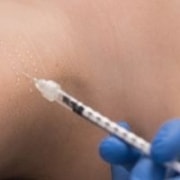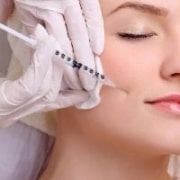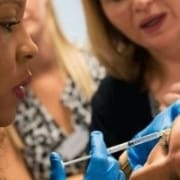It’s been a challenging couple of years for many with a rise in people looking for different career directions. If you have reached a point in your professional career where you are looking for a new challenge or seeking some new skills the aesthetic industry could be the next step that you are looking for.
It can be daunting entering a new sector or starting up a new business. You need to consider your options and know what you are entering into.
Here is our 10 step guide to kick start your aesthetic career:
1.Researching – is there a demand/ much competition in your area?
In order to succeed within your aesthetic business, you need to make sure that there is a demand for your services. It is crucial at this point to conduct market research and use the collated data to inform your business strategy. It is also a good time to look and see how many other businesses exist and what they are offering to give you that competitive edge.
2.Training in the correct field
In order to avoid no further delays, it is best to make sure that you have completed as much training as you can beforehand. When getting started within the aesthetic industry, we recommend that you start with our introductory Foundation Botox and Filler course and then build on your skill set and portfolio with more advanced treatments.
3.Business Structure
You need to decide if you will operate as a Sole trader, Partnership or Limited Company. Each with their own set of pros and cons it would be up to you to decide which structure would be best for your business going forward. Now is a good time to get an accountant and decide with him the best way to set-up your business (this can save you money in the long run).
4.Creating a business plan
A business plan is the most important part of setting up a business, as this is the vital document needed for securing the investment to get started. This plan should include your business objectives and will provide you with the clear direction. In addition to this you will need to consider a time frame to plan out how long you want to take to reach your end goal. This plan can also assist you in thinking about the worst case scenario and can allow you to devise a contingency strategy for any unforeseen events that may occur.
5.Naming your business & creating a logo
It is important to ensure that you have an effective name and appealing company logo. This should reflect and portray the type of business that you want to be. A unique name and logo needs to be thought about carefully to ensure that there is no confusion with competitors. If you have the same name or a logo that is similar, this may result in legal action and loss of sales. When creating the logo, it’s a good idea to name the business so that people know what you do. Make sure that you research different designers and shop around to ensure you are getting the best for your business and allocated budget.
6.Funding your business
Many people tend to use their own savings when starting up their own business. In some cases there are grants available, or you may look to take out a loan from the bank (this will require a business plan) Alternatively, you may know someone that is looking to invest their own money into a new business.
7.Finding a location
It is important to consider where your business will be based. How easy is it to get to for your clientele? Is there plenty of parking? Does it fulfil your requirements? Can you look at expanding when the time comes? Do the costs fit in with your budgets? When choosing the correct location and place, it is always worth taking along a trusted friend, colleague or family member with you – two heads are always better than one and it can help you to visualise the final look.
8.Registering your business
You are legally required to register your business with either Companies House or HMRC before you can start trading. Depending on the type of business structure that you decide will depend on the documentation that you will need. There are certain deadlines that you will need to meet when completing this and all the information that you will need to know and the relevant dates can be found on the Government website.
9.Registering your domain name and website
It’s now common practise for many of your potential customers to research online before contacting you. Your website is therefore very important as it will become the key source of receiving enquiries. Use your website to give potential clients all the information they need about your business, your employees, treatments and services that you offer. You will need to register and purchase your domain name for your website first, and then pay for this every year after.
10.Gaining the correct insurance
To be able to practice in Aesthetic Medicine and kick start your aesthetic career, you must have medical indemnity insurance, public liability insurance, building and contents insurance. If you practice without the correct insurances and end up with a claim, this can result in heavy fines and your business may not be able to continue.
Aesthetic Training with Cosmetic Courses | kick start your aesthetic career!
Here at Cosmetic Courses we offer support right the way through your aesthetic career from choosing which course to start with, creating tailored training packages to meet your requirements and business support to help you become a successful practitioner. But what makes us stand out from other training providers? We are one of the only aesthetic training providers led by a Consultant Plastic Surgeon, we have been training delegates since 2002 so we know what it takes to become a safe and competent injector and we place a real emphasis on practical-based training.
If you would like more information on the courses that we offer to help you get started in aesthetics then please feel free to contact one of our course co-ordinators: 01844 390110 / [email protected].
Find out more about delegate’s most frequently asked questions on Aesthetic Training in our Aesthetics Knowledge Hub.

The perfect course package to get started in Aesthetics
To help you begin your new career into the world of aesthetics we have developed an ‘Introduction into Aesthetics package’.




















